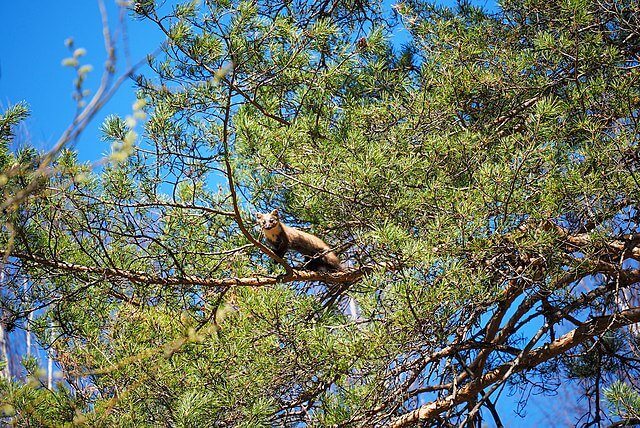
Pine martens have been spotted roaming Exmoor National Park for the first time in a century, conservationists have confirmed.
Nine females and ten males, translocated from populations in the Scottish Highlands, were released at undisclosed locations across Exmoor by the Two Moors Pine Marten Project over a three-week period last month.
Each animal has been fitted with a radio collar, allowing researchers to monitor their movements and survival over the next six to nine months.
Devon Wildlife Trust’s Tracey Hamston, who leads the project, said the animals were “once a key part of our thriving woodland wildlife, so it’s good that they are back where they belong”.
Dr Hamston said the release of the pine martens showed “all is not lost”.
“It’s a positive sign that nature can be restored – our woodlands and their wildlife will benefit from their presence,” she said.
“We’re not separate from wildlife, we live in the same places – and it is really not in a good place.
The trust said pine martens were a “critical” part of woodland ecosystems and performed a very important “balancing effect within the woodland”.
The native mammals, roughly the size of a domestic cat, were transported more than 500 miles (800km) from Scotland in a specially adapted, temperature-controlled vehicle.
Their release was timed to coincide with the seasonal abundance of wild autumn fruits, helping the martens to establish themselves in their new habitat, a project spokesperson said.
The initiative follows a similar reintroduction on Dartmoor last autumn, where the first pine marten kits were born in July 2025.
Once widespread across Britain, pine martens – members of the weasel family – declined sharply during the 18th and 19th centuries due to hunting and widespread woodland loss.
A recent report by the Exmoor Society said the return of pine martens could help restore ecological balance by controlling invasive species such as grey squirrels.
——————————————————————————
At Natural World Fund, we are passionate about restoring habitats in the UK to halt the decline in our wildlife.

